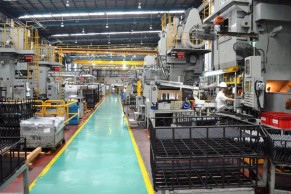Components manufactured by 'new slaves': Shimano supplier investigated for labour exploitation
Shimano continues to face setbacks in a bleak 2023, having to deal with the million-dollar recall of thousands of road cranks, a decline in sales compared to previous years, and the hacking of their computer systems. Now, an article published in the British newspaper The Telegraph accuses one of its suppliers in Malaysia of using workers in semi-slavery conditions.

Shimano's factory working conditions under investigation
Shimano's terrible year seems to have no end. This time it's the working conditions of the workers in their factories that are in question after a publication by The Telegraph newspaper accusing one of the Japanese giant's Malaysian suppliers, Kwang Li Industry, of labor abuses against its workers, most of them immigrants from Nepal.
According to the British media, after the investigation carried out by conducting interviews with workers of the company and having data such as payslips or mail from the company to the Nepalese embassy, they have found out that employees had been subjected to physical abuse and threats, salary reductions, and hiring below the minimum wage.
RECOMENDADO

Alcoholic beverages with the fewest calories

What would you do if you won the lottery? This cyclist bought himself a €20,000 bike

Tips for cycling in the rain

25 cycling gifts ideas to get it right

When do helmets have to be changed? Do they have an expiration date?

The best apps for cycling and mountain biking

This is also not surprising given that Malaysia already has a history of using low-wage migrants to supply its factories. The usual method is for agents to recruit workers from some of the world's poorest countries, such as Nepal and Bangladesh, promising them good jobs and wages. However, upon arrival in Malaysia, many of these workers are stripped of their passports and end up working for poverty wages, with no possibility of returning home and living in precarious conditions in accommodation provided by the companies.
Moreover, according to the recruitment agreement between Nepal and the company, the company should pay the agency the costs of recruitment, medical examinations, airline tickets, etc. However, the workers interviewed by the newspaper indicated that they were the ones who had to bear these expenses.

Of course, Kwang Li Industry has denied the allegations, pointing out that it had fully complied with Malaysian labour laws. However, workers report cases of 15-day suspensions for failing to meet targets, threats of deportation or following a drop in demand after the pandemic boom, unilateral wage reductions and even physical assaults by managers for making a mistake.
For their part, Shimano have only announced the opening of an investigation to try to remedy this situation as soon as possible.